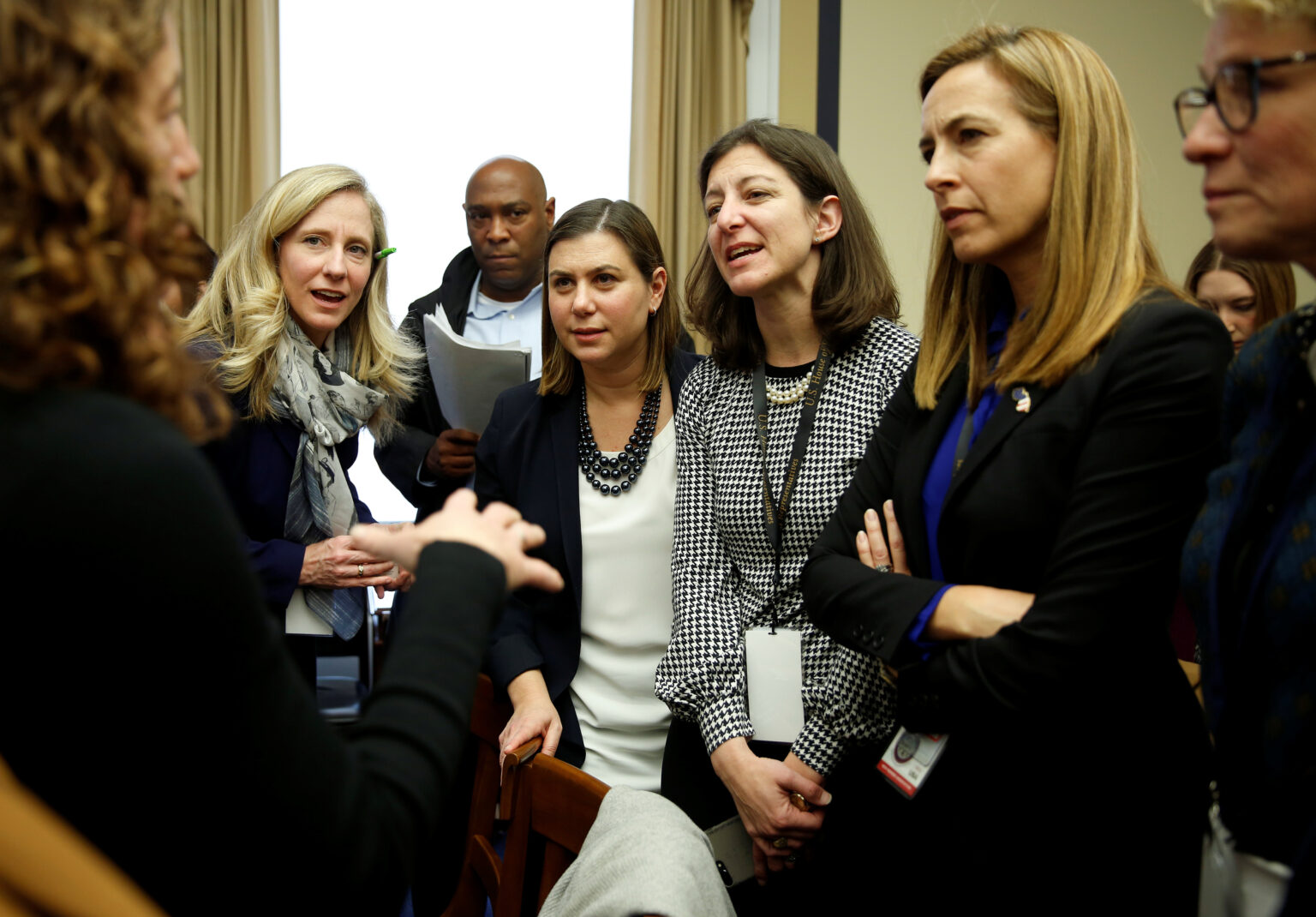Rising Democratic Leaders with National Security Roots Shape the Future
In the early days of President Donald Trump’s administration, a new generation of Democratic politicians emerged, many with backgrounds rooted in national security. These individuals quickly gained prominence, often communicating through close-knit group chats and shared strategies. Today, Abigail Spanberger, Mikie Sherrill, and Elissa Slotkin stand at the forefront of the Democratic Party, exemplifying a centrist approach that helped flip key House districts in 2018 and continues to influence the party’s trajectory.
From Unexpected Beginnings to Political Powerhouses
Initially, none of these women envisioned a career in politics. Their paths changed dramatically after Trump’s 2016 victory, which served as a catalyst for their political ambitions. Spanberger, now 45, had already secured her party’s nomination for governor of Virginia by the time of recent primaries. Meanwhile, Sherrill, 53, secured the Democratic nomination in New Jersey, and Slotkin, 48, a freshman senator from Michigan, was chosen to deliver the Democratic response to Trump’s congressional address this year. They are now strategizing on how to reclaim the presidency and reshape the party’s future.
The Democratic Playbook Revisited
The rise of these lawmakers signals a strategic return to a familiar Democratic approach: elevating candidates with military or intelligence backgrounds who often distance themselves from the party’s more progressive wing. Their success in 2018 demonstrated that moderate, service-oriented candidates could resonate with voters seeking pragmatic leadership. As the 2024 midterms approach, these figures are testing whether this centrist blueprint can sustain momentum amid internal party debates.
Navigating Internal Divisions and Political Identity
While these women have been celebrated for their moderate stances, they also face criticism from more liberal factions within the party. During the 2020 election cycle, Spanberger voiced concerns about the party’s branding, urging Democrats to avoid labels like “socialist” that could alienate voters. Slotkin has publicly clashed with progressive figures such as Senator Bernie Sanders, suggesting that his use of terms like “oligarchy” may be too elitist. Sanders responded by asserting that the American electorate is more perceptive than critics assume.
The “Moderate Vanguard” in Electoral Battles
Currently, these women are leading the charge in key electoral contests. All three flipped Republican-held districts in years marked by Democratic waves, emphasizing their military and intelligence backgrounds-Spanberger and Slotkin served at the CIA, while Sherrill was a Navy helicopter pilot before becoming a federal prosecutor. Their profiles serve as a counterbalance to Trump’s populist appeal, offering a message of experienced, service-driven leadership.
Personal Bonds and Shared Values
Despite the competitive nature of politics, these lawmakers maintain genuine friendships. Their shared experiences-balancing demanding careers with motherhood, navigating the complexities of Capitol Hill, and advocating for national security-have fostered a close-knit camaraderie. Sherrill and Spanberger even shared an apartment during their early congressional days, often discussing how to reform their party and the nation. They jokingly refer to themselves and other women with security backgrounds as the “badass caucus,” though Spanberger prefers a more reserved tone, emphasizing professionalism over bravado.
Campaigns and Future Aspirations
Spanberger’s current race against Virginia Lieutenant Governor Winsome Earle-Sears exemplifies the high stakes of this political moment. The contest is expected to serve as a referendum on Trump’s influence and the broader national political climate. Earle-Sears, a Marine veteran, touts her bipartisan record alongside Governor Glenn Youngkin, positioning herself as a traditional conservative alternative. However, fundraising disparities and enthusiasm gaps suggest that Spanberger’s moderate appeal remains strong.
Sherrill’s campaign in New Jersey has also been shaped by her military service and her stance against Trump and his allies. She has positioned herself as a defender of the state’s values, contrasting herself with her Republican opponent, Jack Ciattarelli, who has aligned more closely with Trump. Her messaging emphasizes her readiness to confront the “Trump-Musk madness,” highlighting her commitment to pragmatic governance.
Strategic Focus on Party Unity and Long-Term Goals
While Sherrill and Slotkin are not on the ballot this cycle, they remain deeply involved in shaping Democratic strategy. Slotkin, in particular, emphasizes the importance of unity within the party, comparing internal disagreements to military battalions that need cohesive leadership to succeed. Her “war plan” against Trump was born out of frustration with the lack of a clear, unified strategy, and she continues to advocate for a disciplined, coordinated approach.
Looking Ahead: The Future of Democratic Moderates
As the political landscape evolves, these women exemplify a pragmatic, service-oriented approach that appeals to a broad spectrum of voters. Their success underscores the importance of experienced leadership rooted in national security, especially in a polarized environment. With upcoming elections, their influence will likely shape the Democratic Party’s efforts to balance progressive ideals with centrist appeal, aiming to secure victories in critical battlegrounds and redefine the party’s identity for years to come.
Note: This article incorporates current political statistics and examples to provide a comprehensive, updated perspective on these influential Democratic figures.

